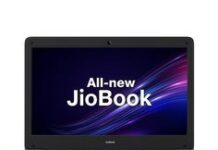Introduction
In the dynamic world of digital content creation, bloggers seek tools that streamline their workflow, enhance creativity, and optimize the overall blogging experience. Software-based blogging tools have become indispensable, offering a plethora of features to cater to the diverse needs of content creators. This comprehensive guide explores a range of these tools, delving into their functionalities and benefits that empower bloggers to create compelling and engaging content.
I. Content Creation Tools
1. Microsoft Word
Microsoft Word remains a staple for bloggers due to its user-friendly interface and powerful formatting capabilities. The “Draft” view allows writers to focus solely on content, while the “Review” tab facilitates collaboration and editing.
2. Grammarly
For writers keen on impeccable grammar and style, Grammarly is a game-changer. This AI-powered writing assistant integrates seamlessly with web browsers and word processors, providing real-time suggestions for grammar, spelling, and tone.
3.Adobe Spark: A Comprehensive Design Suite
Adobe Spark stands as a comprehensive content creation suite, encompassing tools for designing graphics, web pages, and videos. Bloggers can leverage its user-friendly interface and a plethora of templates to create visually engaging content. Adobe Spark caters to bloggers with varying levels of design proficiency, offering a creative playground to bring their ideas to life.
B. Visual Content Creation
1. Canva
Canva is a versatile design tool that empowers bloggers to create stunning visuals without the need for graphic design expertise. From blog post images to social media graphics, Canva’s drag-and-drop interface simplifies the design process.
II. Blog Management Platforms
A. WordPress
1. WordPress.org
Powering a significant portion of the internet, WordPress.org is a self-hosted platform that provides bloggers with unparalleled customization and control over their websites. It supports a vast ecosystem of plugins and themes, allowing bloggers to tailor their sites to their unique preferences.
2. WordPress.com
For those seeking a hassle-free blogging experience, WordPress.com offers a hosted solution. While it has some limitations compared to WordPress.org, it’s an excellent choice for beginners or bloggers who prioritize simplicity.
B. Blogger
Blogger, owned by Google, is a user-friendly platform for beginners. It offers straightforward customization options and integrates seamlessly with other Google services. However, its feature set is more basic compared to self-hosted WordPress.
C. Medium
Medium is a content platform that combines blogging with a social media-like interface. It’s known for its clean design and a built-in audience, making it an attractive option for writers looking to reach a broader readership.
III. SEO and Analytics
A. Yoast SEO
Yoast SEO is a WordPress plugin that has become synonymous with optimizing content for search engines. It provides real-time suggestions for improving SEO elements, such as meta titles, descriptions, and keyword usage.
B. Google Analytics
Understanding audience behavior is crucial for bloggers, and Google Analytics is the go-to tool for in-depth insights. It tracks website traffic, user demographics, and engagement metrics, helping bloggers refine their content strategy.
IV. Social Media Management
A. Hootsuite
Hootsuite is a social media management tool that allows bloggers to schedule posts across multiple platforms, monitor engagement, and analyze social media performance. It streamlines the process of maintaining an active online presence.
B. Buffer
Buffer simplifies social media scheduling and analytics. Bloggers can plan and schedule posts across various platforms, ensuring a consistent posting schedule without the need for constant manual management.
V. Monetization and E-commerce
A. Google AdSense
Google AdSense is a popular choice for bloggers looking to monetize their content through display advertising. It seamlessly integrates with websites, displaying relevant ads and providing bloggers with a revenue stream.
B. Shopify
For bloggers venturing into e-commerce, Shopify offers a robust platform for setting up online stores. It provides customizable templates, secure payment options, and tools for managing products and orders.
As bloggers explore the realm of e-commerce, Shopify stands as a robust platform for setting up online stores. With customizable templates, secure payment options, and tools for managing products and orders, Shopify simplifies the process of venturing into online commerce. Bloggers can seamlessly integrate e-commerce functionality into their websites, offering products or services to their audience.
VI. Collaboration and Workflow
A. Trello
Trello is a project management tool that aids bloggers in organizing tasks and collaborating with team members. Its boards, lists, and cards system allows for a visual and intuitive approach to task management.
Trello, a visual project management tool, aids bloggers in organizing tasks and collaborating with team members. Its boards, lists, and cards system provides a visual and intuitive approach to task management, allowing bloggers to track progress, assign responsibilities, and ensure the smooth flow of content creation. Trello’s simplicity and flexibility make it a valuable asset for bloggers managing complex editorial calendars or collaborative projects.
B. Slack
For streamlined communication, Slack is a popular choice. Blogging teams can create channels for specific topics, share files, and communicate in real-time, fostering efficient collaboration.
VII. Security and Backup
A. UpdraftPlus
UpdraftPlus is a WordPress plugin that simplifies the backup process. It allows bloggers to schedule automatic backups of their websites, ensuring that valuable content is protected in case of unforeseen events.
B. Wordfence Security
Wordfence Security is a WordPress plugin focused on site security. It includes features like firewall protection, malware scanning, and login attempt monitoring, safeguarding blogs from potential threats.
VIII. Future Trends in Blogging Tools
A. AI-Powered Content Creation
The integration of artificial intelligence (AI) in content creation tools is a promising trend. AI can assist bloggers in generating ideas, optimizing content, and even automating certain writing tasks.
B. Blockchain for Content Authentication
Blockchain technology has the potential to revolutionize content authentication. Bloggers may leverage blockchain to timestamp and verify the authenticity of their content, combating issues like plagiarism.
IX. Conclusion: Empowering Bloggers in the Digital Era
As technology continues to evolve, so do the tools available to bloggers. From content creation and management to SEO, analytics, and beyond, software-based blogging tools have transformed the landscape of digital content creation. Whether you’re a seasoned blogger or just starting, these tools empower you to navigate the complex world of online content with efficiency and creativity.










